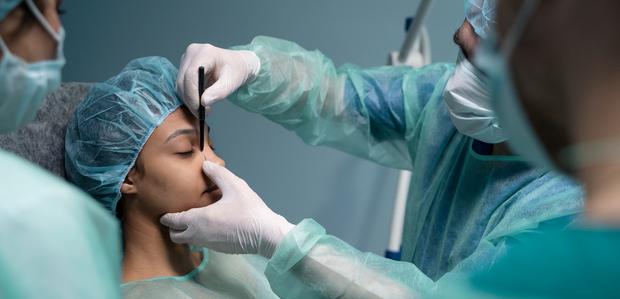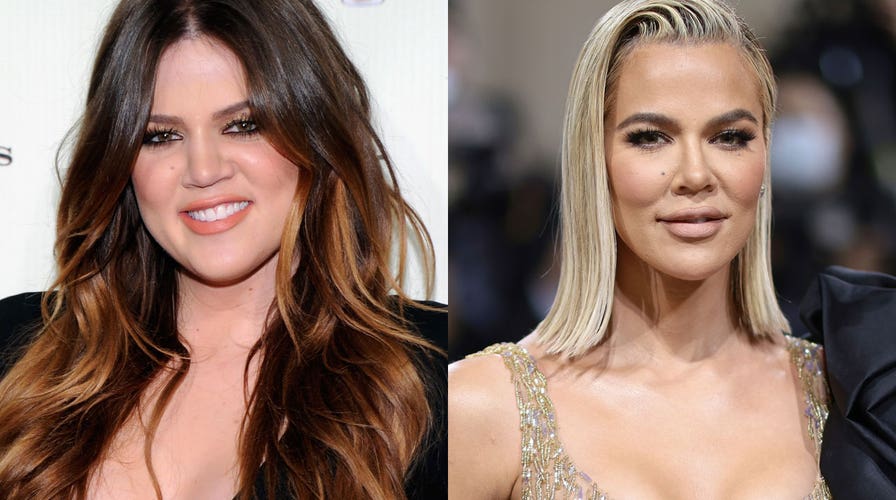Examining the Mental and Social Elements That Drive Individuals to Think About Aesthetic Surgical Treatment as a Means of Renovation
The decision to go after cosmetic surgical treatment commonly extends beyond mere aesthetics, intertwining with social and mental dynamics that merit thorough examination. Variables such as self-confidence, prevalent societal elegance requirements, and the pervasive influence of social media converge to form private motivations for medical improvement.
The Role of Self-confidence
Self-confidence substantially affects an individual's decision to seek plastic surgery. Individuals with low self-worth usually perceive themselves in a negative light, leading to sensations of inadequacy concerning their physical appearance. This unfavorable self-perception can drive them to seek medical interventions as a method of improving their self-image. The need for renovation in one's look is frequently connected to a belief that such modifications will boost their overall self-worth and self-confidence.

Ultimately, the role of self-worth in the decision-making procedure relating to cosmetic surgical procedure highlights the intricate interaction in between body image, individual satisfaction, and psychological health. Comprehending this relationship is important for health care experts to make sure that people are making informed decisions rooted in sensible assumptions and emotional wellness.
Social Beauty Standards
Influenced by pervasive media portrayals and social stories, societal beauty standards play an essential role in shaping people' assumptions of their very own bodies. These requirements are often characterized by an idealized form of charm that highlights characteristics such as slimness, proportion, and youthful vigor. As these perfects are perpetuated via different channels, including marketing, television, and movie, people often internalize these messages, causing frustration with their natural look.
The ramifications of these societal norms extend beyond aesthetic choices; they can impact self-confidence, mental wellness, and social partnerships. Individuals who regard themselves as disappointing these standards may experience feelings of inadequacy, prompting a desire for cosmetic surgery as a way of achieving social authorization. This pursuit is typically fueled by the idea that satisfying these perfects will enhance not just physical appearance but also social standing and individual gratification.

Influence of Social Media
The influence of social elegance criteria is further magnified by the rise of social media systems, where curated pictures and idealized representations of beauty are common. Individuals are constantly subjected to filteringed system and modified photos, which typically illustrate unattainable physical characteristics. This exposure cultivates a society of contrast, leading individuals to evaluate their very own appearance versus these usually impractical benchmarks.
Social media influencers and celebrities often advertise cosmetic treatments, stabilizing the notion that surgical enhancements are a feasible means for accomplishing social suitables (plastic surgery rancho cucamonga). The visibility of these improvements can create an assumption that undergoing plastic surgery is a common practice, consequently affecting people to consider comparable treatments as a pathway to enhanced self-esteem and social acceptance
Additionally, the interactive nature of social this content media sites enables instant responses through likes and comments, even more strengthening the need to adapt to popular appeal criteria. Such communications can aggravate feelings of inadequacy and drive individuals towards cosmetic surgical procedure as a way of obtaining recognition. Inevitably, social media plays a pivotal duty fit perceptions of charm, which dramatically affects the decision-making processes bordering cosmetic surgical procedure.

Social Viewpoints on Look
Throughout various societies, understandings of appearance are deeply rooted in historical, social, and economic contexts, forming people' views on charm and charm. In several cultures, appearance works as a significant pen of identity, influencing social standing, expert opportunities, and personal partnerships. For instance, in some cultures, light skin is commonly connected with riches and privilege, while others may glorify darker complexion as signs of stamina and authenticity.
In addition, typical elegance requirements are usually continued with cultural narratives, media representations, and household influences, resulting in differing suitables across different areas (plastic surgery rancho cucamonga). In Western societies, the focus on youth and physical conditioning typically drives people toward cosmetic improvement, while in specific Eastern societies, even more refined modifications aligned with conventional visual appeals may be liked
Globalization and the spreading of digital media have actually even more made complex these characteristics, developing a hybridization of appeal suitables that transcends geographical boundaries. As people significantly navigate these cultural narratives, the pressure to comply with certain look criteria can bring about the wish for plastic surgery, showing a complex interplay of cultural values and individual aspirations. Recognizing these social viewpoints is important in addressing the motivations behind plastic surgery factors to consider.
Psychological Impacts of Plastic Surgery
Many individuals seeking cosmetic surgical procedure report experiencing profound psychological influences that can dramatically modify their self-perception and psychological health - plastic surgery rancho cucamonga. The desire for physical enhancement typically stems from underlying problems such as go to this web-site reduced self-worth, body dysmorphic condition, or societal stress relating to charm standards. For some, the instant post-operative stage can lead to a momentary increase in positive self-image and complete satisfaction with their appearance, cultivating a feeling of empowerment
However, these favorable feelings may not be enduring. Study shows that while some clients experience improved self-confidence, others might deal with elevated anxiety or clinical depression if their expectations are not fulfilled. This discrepancy can develop from unrealistic perfects bolstered by media depiction and social stories bordering beauty.
In addition, the mental implications of plastic surgery extend beyond the person. Relationships with friends and family may be stressed as social characteristics change, causing feelings of isolation or alienation. Eventually, the emotional effects of cosmetic surgery are complicated and multifaceted, requiring careful factor to consider by both potential individuals and healthcare providers to guarantee educated decision-making and realistic assumptions.
Final Thought
To conclude, the choice to pursue plastic surgery is substantially affected by a combination of self-confidence concerns, societal elegance standards, and social point of views on appearance. The pervasive reach of social media sites even more intensifies these stress, advertising impractical perfects that people typically strive to obtain. Comprehending these mental and social variables is necessary for resolving the inspirations behind cosmetic surgical procedure, highlighting the demand for an extra nuanced conversation bordering appeal and self-acceptance in contemporary society.
The decision to go after cosmetic surgical treatment commonly prolongs beyond mere looks, intertwining with social and mental characteristics that merit thorough exam. Ultimately, social media plays an essential role in shaping understandings of charm, which significantly impacts the decision-making processes bordering cosmetic surgical procedure.
As people significantly navigate useful link these cultural narratives, the pressure to adjust to specific look standards can lead to the need for cosmetic surgical treatment, showing a complex interaction of individual desires and cultural values.In final thought, the decision to go after cosmetic surgery is substantially influenced by a combination of self-confidence concerns, societal beauty requirements, and cultural perspectives on appearance. Understanding these social and emotional aspects is necessary for resolving the inspirations behind cosmetic surgery, highlighting the requirement for a much more nuanced discussion surrounding elegance and self-acceptance in contemporary culture.